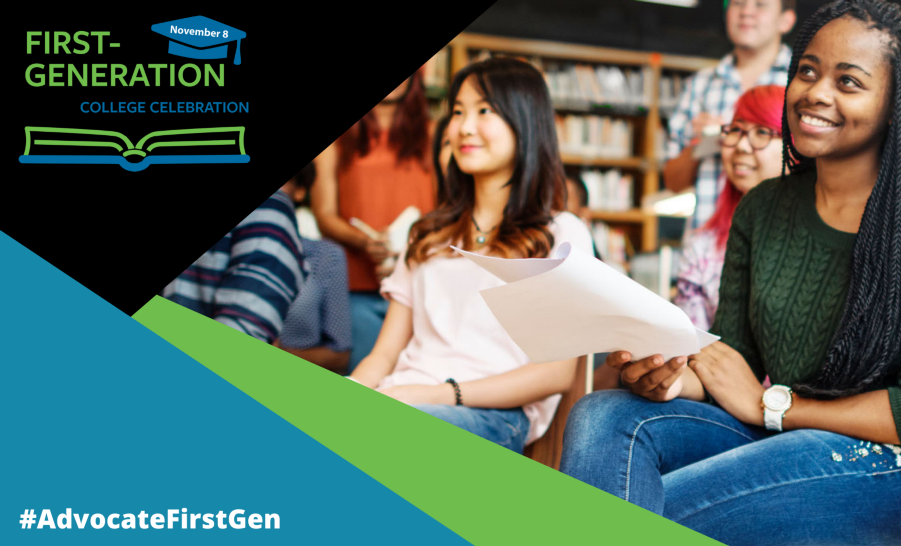On Worthiness, Knowledge Curation, and Diversifying OER
This project takes a crowdsourcing approach to diversify OpenStax Psychology (OpenStax College, 2014), an Open Educational Resource (OER) for Introductory Psychology courses.
FirstGen Forward / November 03, 2020

Since 2017, the Center and the Council for Opportunity in Education (COE) have sponsored the National First-Generation College Celebration on November 8 to honor the signing of the Higher Education Act of 1965. This groundbreaking legislation was intended to create equal opportunity for U.S. citizens from minority and low-income backgrounds in higher education settings. Not only did the legislation establish federal programs to help students finance their education and make key investments in higher education institutions, but it’s also where the term “first-generation” made its first appearance.1
Colleges and universities now offer programming to celebrate the success of first-generation students, as well as first-generation staff and faculty. Many offer creative programming to do so and share their activities on social media by using #CelebrateFirstGen. These activities are important in acknowledging first-generation students as an integral constituency in higher education.
As a follow up, the Center encourages higher education professionals and students to take the celebration one step further to #AdvocateFirstgen! Building off the momentum of First-Generation College Celebration events, what can you do to keep the attention on first-generation students and leverage the support and excitement? Can you #AdvocateFirstgen by:
Engaging in additional recruitment efforts for an existing or new student organization? Not every first-generation student recognizes the definition applies to them at the time they enter post-secondary education. Given the extra attention by First-Generation College Celebration events, students may realize they identify as first-generation and become interested in opportunities to connect with other students.
Taking an inventory of your campus programs that support first-generation students? Does the programming consider the intersectional identities of many of your first-generation students including race, ethnicity, part-time, returning learners, or veterans (to name a few)? If not, how can you include these students in future plans?
Mapping the locations of faculty and staff who self-identify as first-generation? Many institutions pass out stickers, buttons, or other swag to faculty and staff members who identify as first-generation. Creating a directory or map of offices for these individuals and posting it on first-generation program websites can assist first-generation students in locating faculty or staff they may feel more comfortable speaking with when seeking advice.
Celebrating first-generation students is important, and First-Generation College Celebration events place a spotlight on these students. Identifying next steps to continue the momentum and build upon the awareness provide additional opportunities to #AdvocateFirstgen!
(f) DEFINITIONS.—For the purpose of this chapter: (1) FIRST GENERATION COLLEGE STUDENT.—The term ‘‘first-generation college student’’ means— (A) An individual both of whose parents did not complete a baccalaureate degree; or (B) In the case of any individual who regularly resided with and received support from only one parent, an individual whose only such parent did not complete a baccalaureate degree.